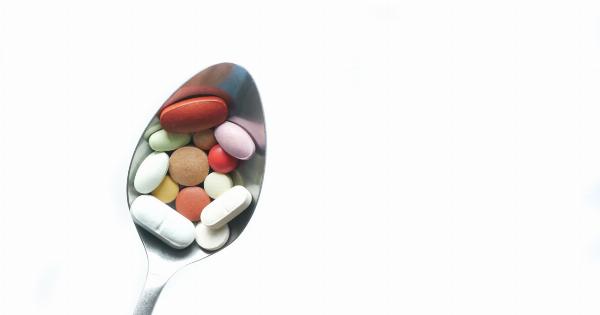Acne is a common skin condition that affects millions of people worldwide. It occurs when the hair follicles become clogged with oil and dead skin cells, leading to the formation of pimples, blackheads, and whiteheads.
While acne mostly affects teenagers during puberty, it can also occur in adulthood. Hormonal changes, genetics, and lifestyle factors such as diet and stress are believed to contribute to acne development.
Types of Acne
There are different types of acne, each with its own characteristics and treatment options:.
1. Acne Vulgaris
Acne vulgaris is the most common form of acne. It is characterized by the presence of blackheads, whiteheads, pimples, and cysts. It typically occurs on the face, chest, and back.
2. Acne Rosacea
Acne rosacea is a chronic skin condition that primarily affects the face. It is characterized by redness, flushing, and small red bumps. Unlike acne vulgaris, acne rosacea does not produce blackheads or whiteheads.
3. Cystic Acne
Cystic acne is a severe form of acne that causes large, painful cysts beneath the skin. It is often resistant to topical treatments and may require oral medication or other medical interventions.
Debunking Acne Myths
There are several misconceptions associated with acne. It is important to separate fact from fiction to effectively manage and treat acne:.
1. Acne is caused by poor hygiene
Contrary to popular belief, acne is not caused by poor hygiene. While it is essential to keep the skin clean, excessive washing or scrubbing can aggravate acne and worsen the condition.
2. Acne is only a teenage problem
While acne is most common during puberty, it can affect individuals of all ages. Hormonal changes, stress, and other factors can lead to the development of acne in adults.
3. Popping pimples helps acne heal faster
Popping pimples may provide temporary relief, but it can lead to infection, scarring, and further breakouts. It is best to avoid picking or squeezing pimples.
Prevention and Treatment
Preventing and treating acne involves adopting a comprehensive approach that includes the following:.
1. Good skincare routine
Establishing a regular skincare routine is crucial for managing acne. This involves gentle cleansing and moisturizing, avoiding harsh or abrasive products, and protecting the skin from excessive sun exposure.
2. Healthy diet and lifestyle
Eating a balanced diet rich in fruits, vegetables, and whole grains can help support overall skin health. Avoiding excessive consumption of sugary and greasy foods may also reduce acne breakouts.
Additionally, managing stress levels and getting regular exercise can contribute to clearer skin.
3. Over-the-counter treatments
There are numerous over-the-counter products available for acne treatment. These typically contain ingredients such as benzoyl peroxide, salicylic acid, or sulfur, which help to unclog pores and reduce inflammation.
It is important to choose products suitable for one’s skin type and follow the instructions carefully.
4. Prescription medications
In more severe cases of acne, prescription medications may be necessary. These can include topical retinoids, antibiotics, or oral contraceptives for hormonal acne.
It is essential to consult a dermatologist to determine the most appropriate treatment plan.
Understanding Herpes
Herpes is a viral infection that causes a range of skin symptoms. It is caused by the herpes simplex virus (HSV), which has two types: HSV-1 and HSV-2.
Types of Herpes
There are two primary types of herpes infections:.
1. Oral Herpes
Oral herpes, also known as cold sores or fever blisters, is caused by HSV-1. It is characterized by the formation of small, painful blisters on or around the lips, mouth, or gums.
2. Genital Herpes
Genital herpes is caused by HSV-2 and is typically transmitted through sexual contact. It causes the formation of small, painful blisters and sores in the genital or anal area.
Managing Herpes Outbreaks
While there is no cure for herpes, outbreaks can be managed effectively with the following measures:.
1. Antiviral Medications
Antiviral medications can help shorten the duration and severity of herpes outbreaks. These medications, such as acyclovir or valacyclovir, are typically available in topical or oral forms and must be prescribed by a healthcare professional.
2. Proper Hygiene
Keeping the affected areas clean and dry can help prevent secondary infections and expedite the healing process. Avoiding irritants, such as scented soaps or creams, is highly recommended.
3. Pain Relief
Over-the-counter pain relievers, such as acetaminophen or ibuprofen, can help alleviate discomfort associated with herpes outbreaks. Applying cold compresses or numbing creams may also provide temporary relief.
4. Safe Sexual Practices
Practicing safe sex, including the use of condoms and avoiding sexual contact during active outbreaks, can help reduce the risk of transmitting genital herpes to partners.
Understanding Eczema
Eczema, also known as atopic dermatitis, is a chronic skin condition characterized by inflamed, dry, and itchy skin. It is a common condition that affects people of all ages.
Symptoms of Eczema
The symptoms of eczema can vary from person to person and may include:.
1. Dry, Rough Skin
Eczema often leads to extremely dry and rough skin, which can be itchy and sensitive to irritants.
2. Redness and Inflammation
The affected skin may become red, inflamed, and swollen. Scratching can further intensify these symptoms.
3. Itching and Irritation
Eczema is usually accompanied by intense itching, which can disrupt sleep and daily activities.
Managing Eczema
While eczema cannot be cured, it can be managed effectively with the following measures:.
1. Moisturize Regularly
Keeping the skin well-moisturized is crucial for managing eczema. Applying a fragrance-free moisturizer immediately after bathing helps trap moisture in the skin and prevents dryness.
2. Avoid Triggers
Identifying and avoiding triggers that worsen eczema symptoms is essential. These triggers can include certain fabrics, irritating chemicals, stress, or allergens such as dust mites or pet dander.
3. Use Mild Soaps and Detergents
Using mild, fragrance-free soaps and detergents can minimize skin irritation. It is advisable to opt for products specifically formulated for sensitive skin.
4. Prescription Medications
In severe cases of eczema, topical or oral medications may be prescribed to control symptoms and reduce inflammation. These may include corticosteroids, immunomodulators, or antihistamines.
Conclusion
Acne, herpes, and eczema are common skin conditions that can significantly impact one’s quality of life. Understanding the causes, symptoms, and available treatment options for each condition is crucial for effective management.
By adopting a comprehensive approach and seeking professional guidance when necessary, individuals can overcome the challenges associated with these skin problems and achieve healthier, clearer skin.





























